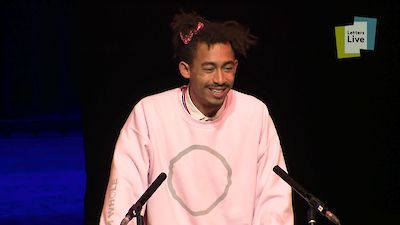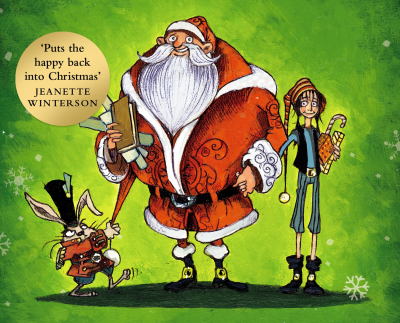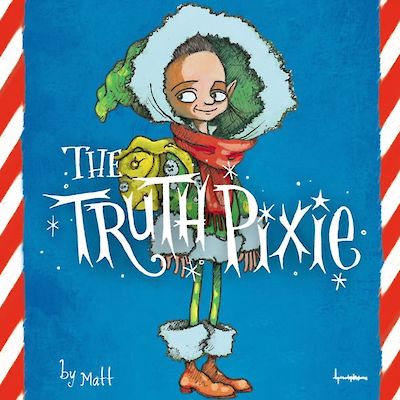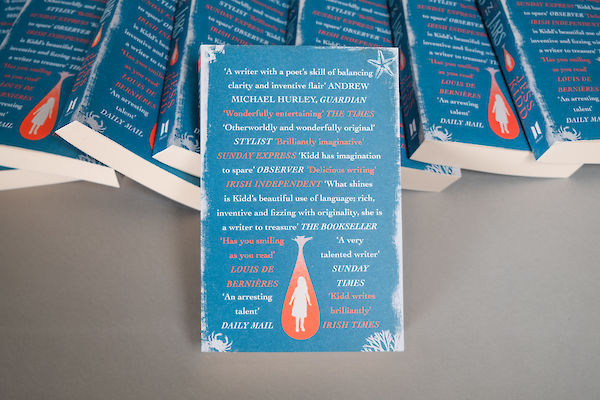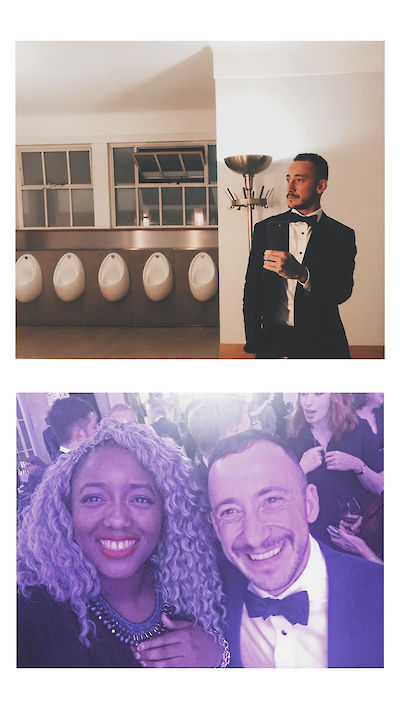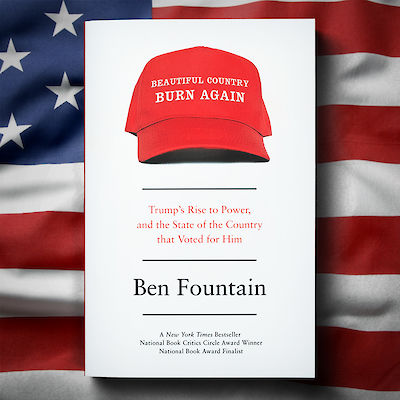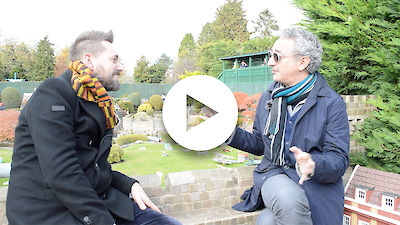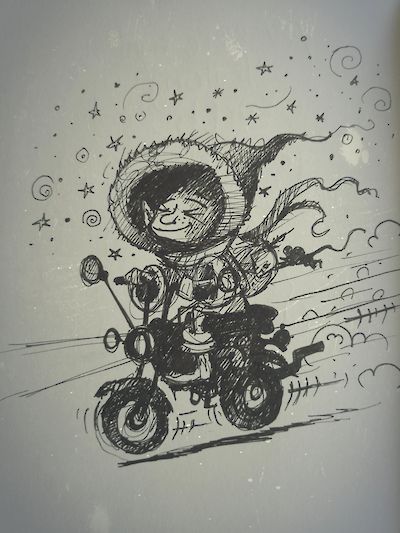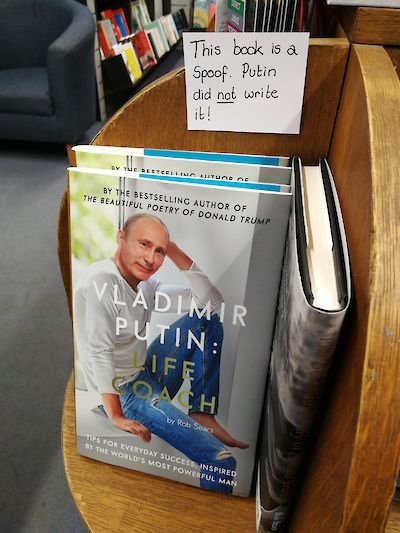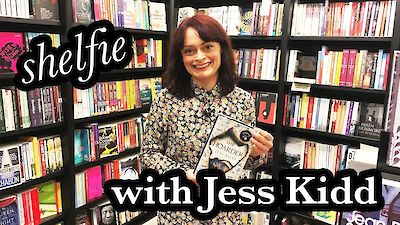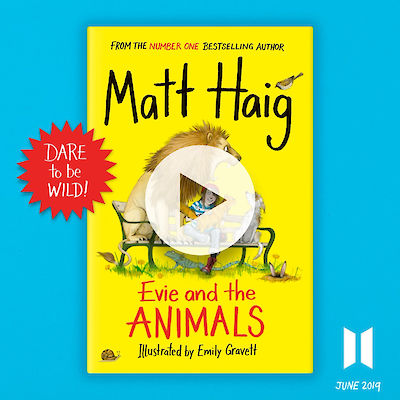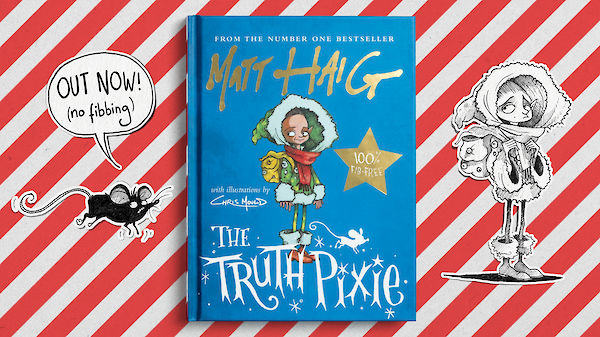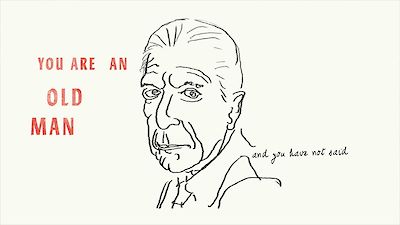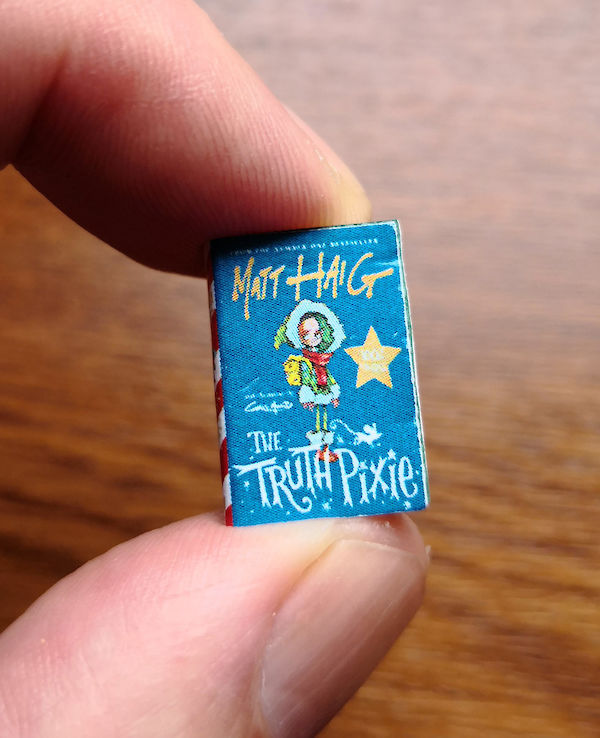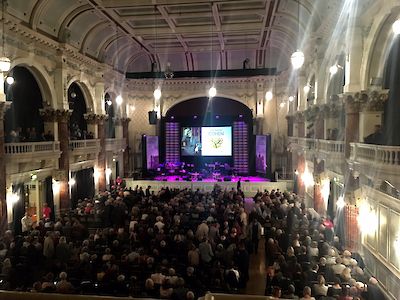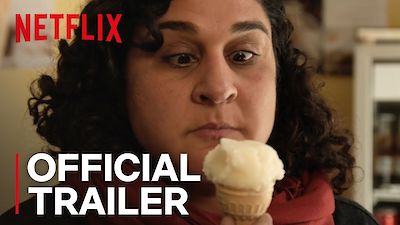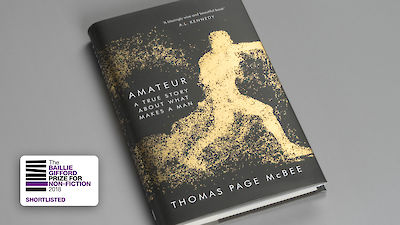Letters Live is a series of events where remarkable letters are read by a diverse array of outstanding performers. On 4th December 201 an incredible line up took to the newly opened Alexandra Palace Theatre stage: Chiwetel Ejiofor, Joely Richardson, Alison Steadman, Louise Brealey, Celia Imrie, Clarke Peters, Chimamanda Ngozi Adichie, Jordan Stephens, Simon Callow and Paul Ryan, with musical performances from Tom Odell. The night was in aid of Crisis at Christmas, ensuring homeless people across the country have a place to go and a meal to eat this Christmas.
We made a little pal who prints you a present. Giftbot dispenses prose, poetry, comics and art at the push of a button. If you’re near The Edinburgh Bookshop any time during December drop in and it might give you something by David Shrigley, Lemn Sissay, Jeanette Winterson, Matt Haig, Rebecca Solnit, Richard Holloway, Tom Gauld, or even a SPECIALLY WRITTEN Jess Kidd short story!
The Valley at the Centre of the World
“Tallack shows us the past and future colliding in the present, and illustrates the difficulty of maintaining a culture in a world that is shrinking. The Valley at the Centre of the World is a thoughtful, engaging and valuable addition to the literature of islands. It’s difficult to read it and not think of Britain as a whole, an island currently engaged in an ugly push and pull between those who look inwards and those with their telescopes trained beyond the horizon.”
Ben Myers
New Statesman
Here is the very start of the very special, brand new audio edition of The Truth Pixie by Matt Haig, read by none other than Olivia Colman! And for every copy sold of this exclusive edition, we’re donating 50p to Unicef UK. Get it at Audible!
(The video’s animated with illustrations from the book by Chris Mould!)
Samin Nosrat’s Sensual, Compassionate Food Travels in Salt, Fat, Acid, Heat
The New Yorker writes about the wonder that is Samin Nosrat, and her indespensible cookbook Salt, Fat, Acid Heat:
“Authoritative but not despotic, aspirational but still realistic, and endlessly witty, the book invites us to liberate ourselves from the bondage of recipes, and instead to practice a form of cooking that is informed and intuitive, based on her theory of balance. (There are still very good recipes in the book; try the buttermilk-roasted chicken.) Now Salt, Fat, Acid, Heat is a hit documentary series on Netflix. Each of its four episodes is dedicated to both an element—‘Fat is a miracle,’ Nosrat says, in the first episode—and a region of the world. Plenty of amateur gourmands, myself included, were already Nosrat fans, but the enthusiasm with which the Netflix show has been received has to do with Nosrat’s uncommon earnestness on camera. It is disarming, and then relieving, to watch someone pledge to her life’s work such unmitigated love.”

New Yorker
Small world: Why we love tiny things

Simon Garfield was in the Observer at the weekend, writing about making a version of himself small enough to hold in his hand, and the endless fascination of all things miniature: those worlds within worlds, from toy towns to dolls houses and beyond.
Observer
“So much of politics is absurd and dumb”

Malcolm Gladwell and Ben Fountain sat down to discuss Ben’s new book Beautiful Country Burn Again, as well as Trump and the combustible state of the American psyche.
Guardian
Jess Kidd, author of The Hoarder, goes through the shelves of Waterstones to talk about some of the authors that inspired her – from Charles Dickens to Angela Carter and David Almond.
“What is going on in our world that can possibly explain such a fervent desire to shrink it?”
Simon Garfield considers the compulsion towards making miniatures in a Guardian longread about little things.
Guardian
Recording from Leonard Cohen’s acceptance address for the Prince of Asturias Award, 21 October 2011. Included in Leonard Cohen’s final collection, The Flame.
Salt, Fat, Acid, Heat – the wonderful Samin Nosrat’s Sunday Times Food Book of the Year – is coming to Netflix! Here’s the official trailer: look out for it on 11 October.
